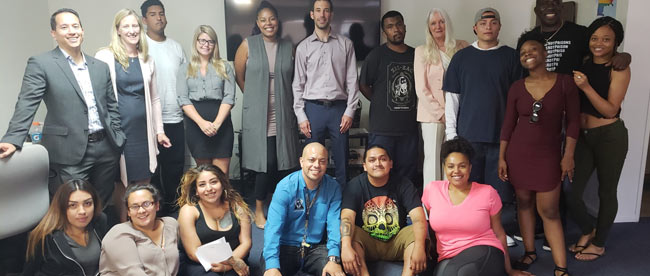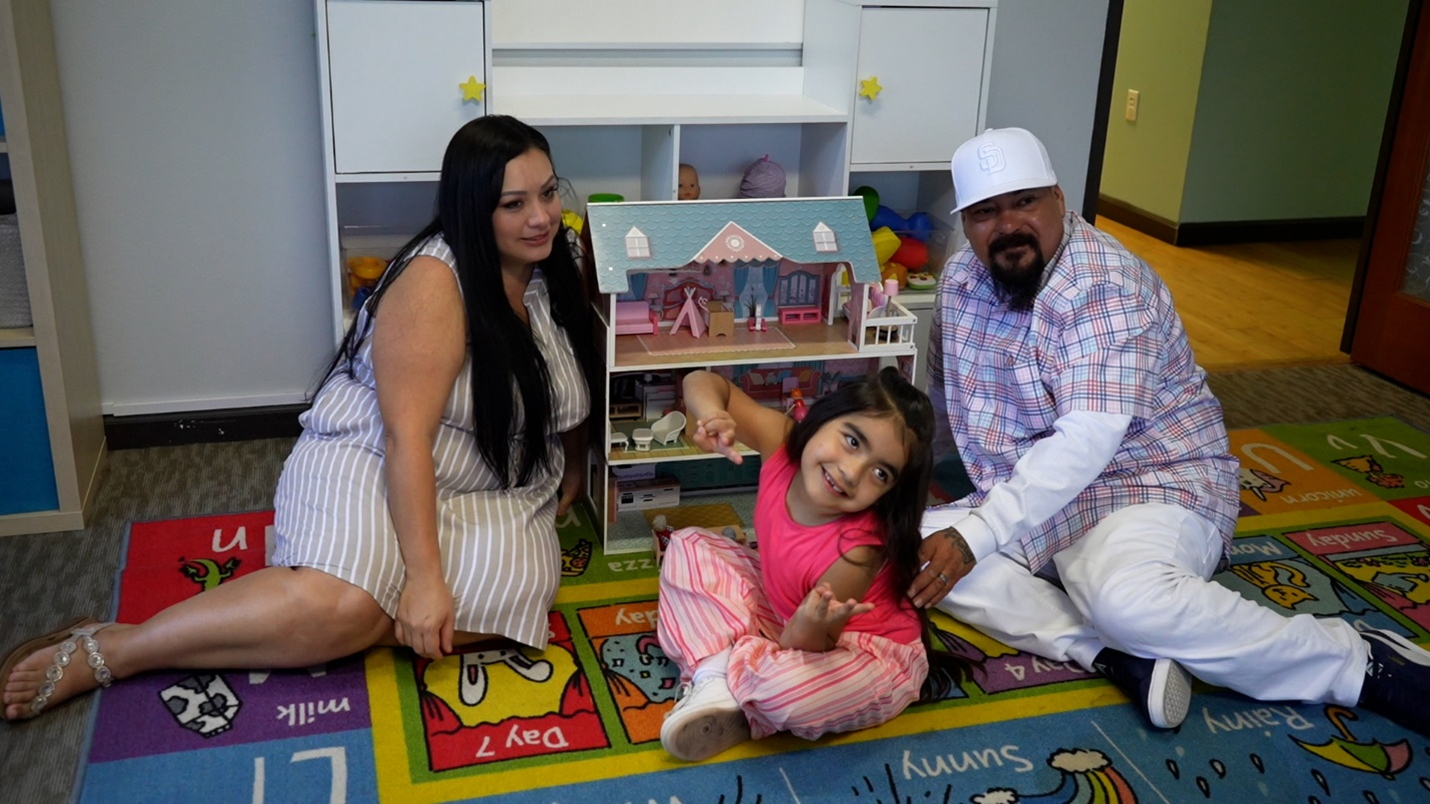This article was originally published on the Clinton Foundation website.
In the emotional struggle to regain custody of her daughter, Vania says the actions taken by her trauma-informed social worker made the process easier to go through.
“After talking to her, everything just got better. I felt like nobody was talking to me, nobody was communicating with me,” she said. “I was close to giving up emotionally because it’s draining. It hurts.”
Vania had been involved with Child Welfare Services (CWS) for months, working to regain custody of her young daughter. She said her experience took a turn when she met Shlyn, a trauma-informed social worker for San Diego County Central Region Child Welfare Services, at a meeting where stakeholders and young people gathered in hopes of making progress in the child welfare and juvenile justice systems.
The meeting she attended is part of the Clinton Health Matters Initiative’s (CHMI) trauma-informed care group that works to integrate more trauma-informed policies and practices at pediatricians’ offices, faith-based organizations, homeless shelters, and grassroots organizations.
“She talked to me, she called me,” Vania said of Shlyn. “ She asked me, ‘What do you need? What is it that you’re looking for? What are your concerns? Where can we help you?’” These trauma-informed interactions made a difference in Vania’s perspective of Child Welfare Services.
In San Diego County — and most U.S. cities — children and families involved with the foster care and juvenile justice systems are dealing with personal challenges, trauma, and uncertain futures. It’s here that the Clinton Foundation, The San Diego Foundation, and the County of San Diego are collaborating to be proactive and identify sustainable solutions to the challenges encountered by families involved in the child welfare and juvenile justice systems.
How a new partnership is improving quality of life for children & families in San Diego: https://t.co/QsNJdYuhHo
— Clinton Foundation (@ClintonFdn) April 30, 2017
Building on the progress of the “Live Well San Diego” vision to have a region that is healthy, safe, and thriving, this partnership aims to improve outcomes for vulnerable children and provide important lessons for communities across the United States. The “Strong Families, Thriving Communities” (SFTC) coalition, formed in 2017 and facilitated by CHMI and partners, seeks to improve the health and well-being of children and families involved with San Diego’s child welfare and juvenile justice systems and address disproportionality and disparities of families involved with these systems.
In San Diego County, Child Welfare Services has adopted a trauma-informed approach as the best practice. Involvement with Child Welfare Services is difficult for children and families and trauma informed practices can help address those difficulties and remove barriers for family reunification.
With the assistance of CHMI, SFTC members created and prioritized their objectives through 29 Bold Action Steps: diverse, measurable, and collaborative goals to improve San Diego communities. Two of these steps involve implementing trauma-informed care and resiliency-building approaches to all systems and providers and providing supportive and culturally-relevant services by staff who have lived experience.
Trauma-informed care
CHMI’s Bold Action Step integrates awareness and understanding of trauma and its impact as the means to facilitate recovery. This, according to Shlyn, broadly looks like “being aware of different types of trauma that people have experienced, how does it affect the person in the present and then looking at how to respond to people in a sensitive, caring and understanding way.”
This sometimes can mean identifying a network for parents involved with CWS; the network typically includes anyone who cares about the child such as teachers, doctors, extended family members or family friends, depending on the situation.
“If it’s the mother who needs help taking the kids to school every day, or when the mother feels like she is having difficulty coping, or when she’s feeling very overwhelmed, who on her team can help support her to provide child care or just provide a time of respite or who can perhaps bring a meal? Who can the father call to say ‘I need to talk.’” Shlyn described.
Shlyn recalls when she first met Vania: “I simply asked her, ‘Is there anything that I can do to help’?”
For Vania, the person-centered and trauma-informed approach made all the difference. She now has a support group, Youth Empowerment, a CHMI partner organization that highlights the importance of the youth voice in bringing trauma-informed care to all service providers. Vania says she “would have been lost” without it.
Most importantly to her, she spends time with her daughter again — supervised visits for now that she hopes will soon be unsupervised and overnight.
“I’m getting housing for my daughter. I have a job. I’m going to school,” Vania said, “I don’t want other people that are going through the same thing to be like ‘This is so hard, so I’m just going to give up.’ At the end of the day it’s worth the fight.”
For Shlyn, Vania’s case is indicative of how child welfare services should work.
“Our workers are very committed to what they do and they want to see families do well and keep their children safe,” she said, “So I’m very glad to hear that things are going well for Vania and her daughter.”
We believe that the inclusive coalition we’re building can improve the health and well-being of families whose lives are touched by the child welfare and juvenile justice systems. Please look to our Blueprint for Action, which identifies specific actions that the coalition are taking to bring about sustainable, systemic change.




